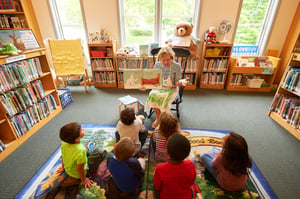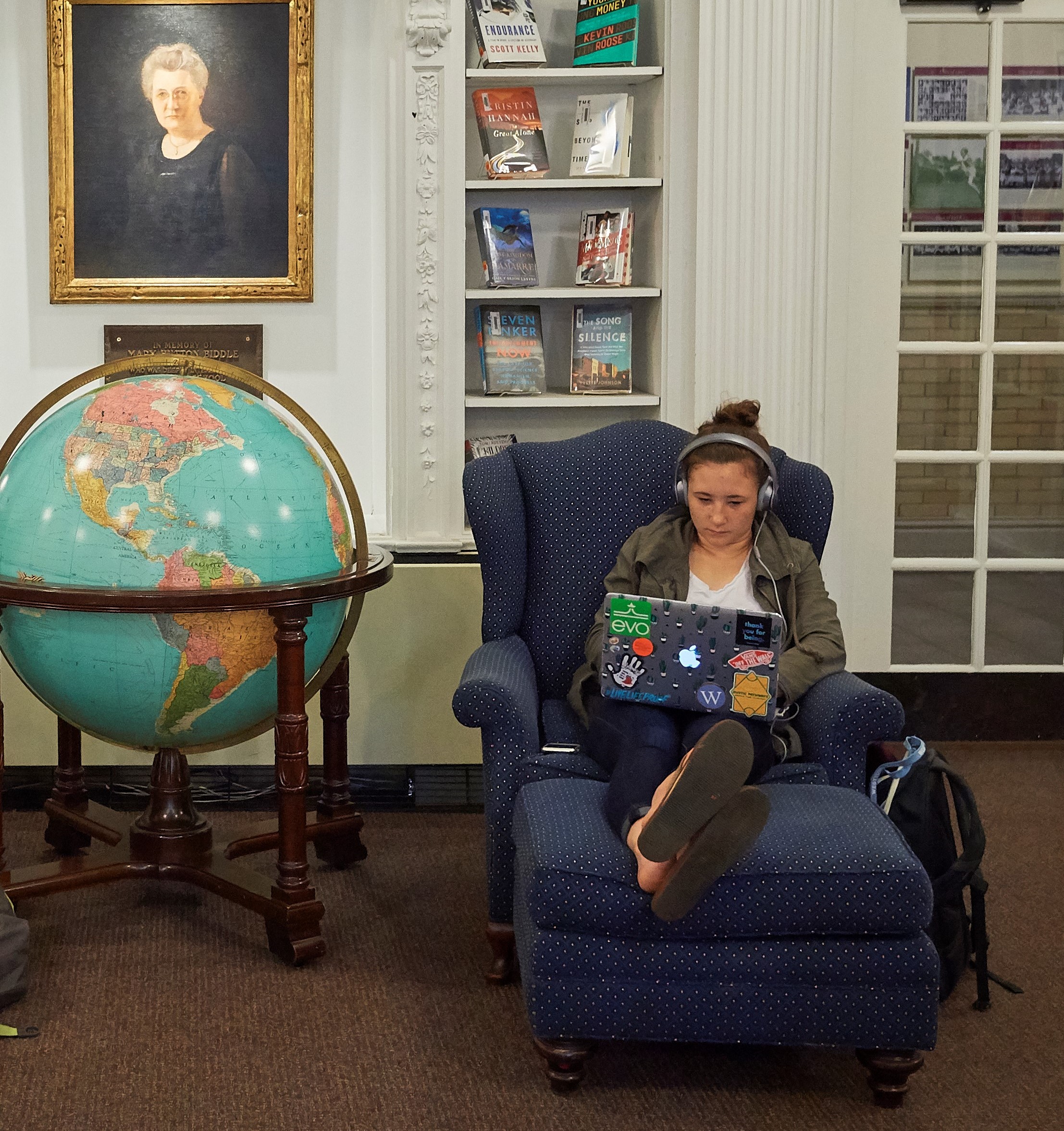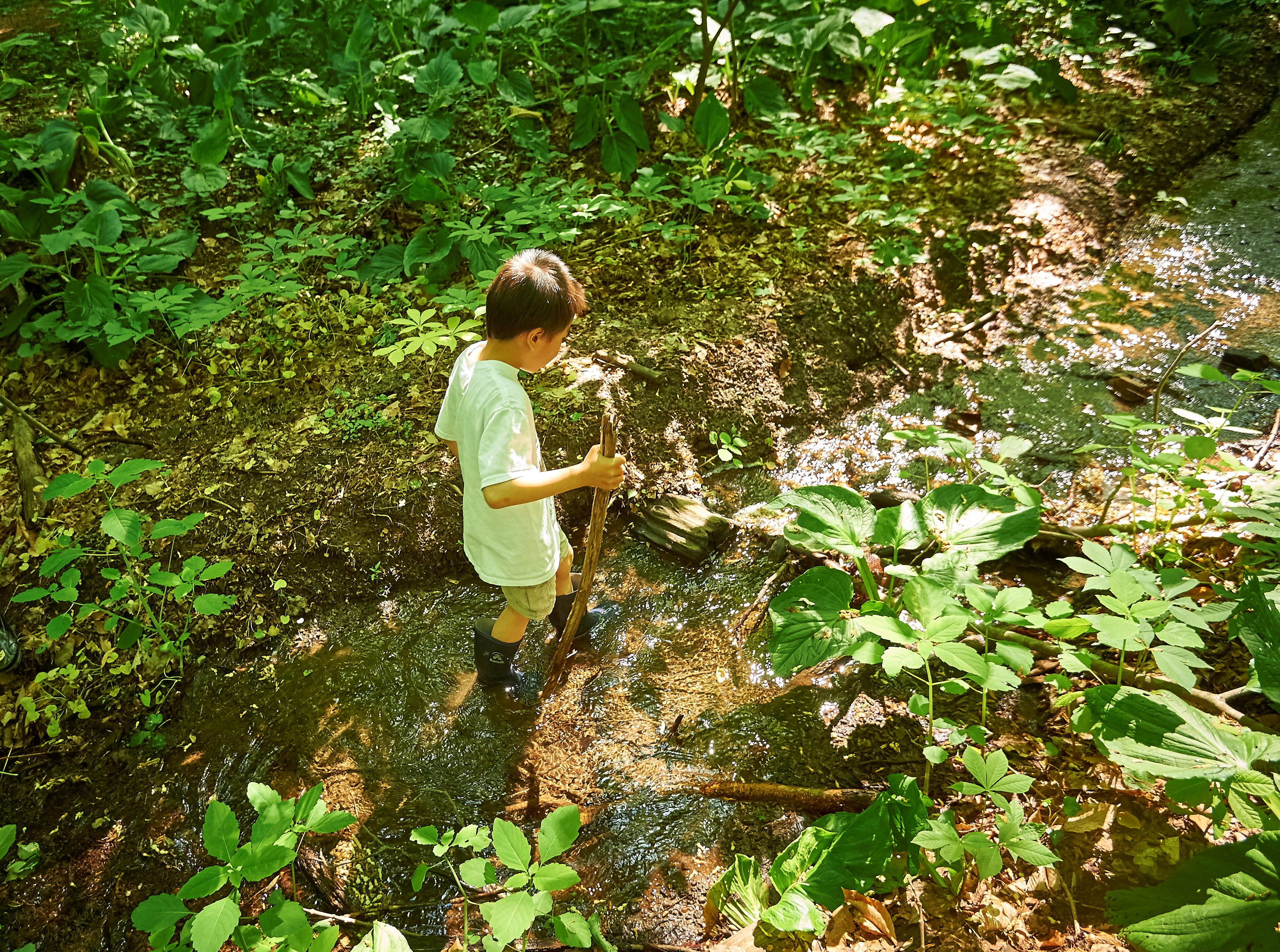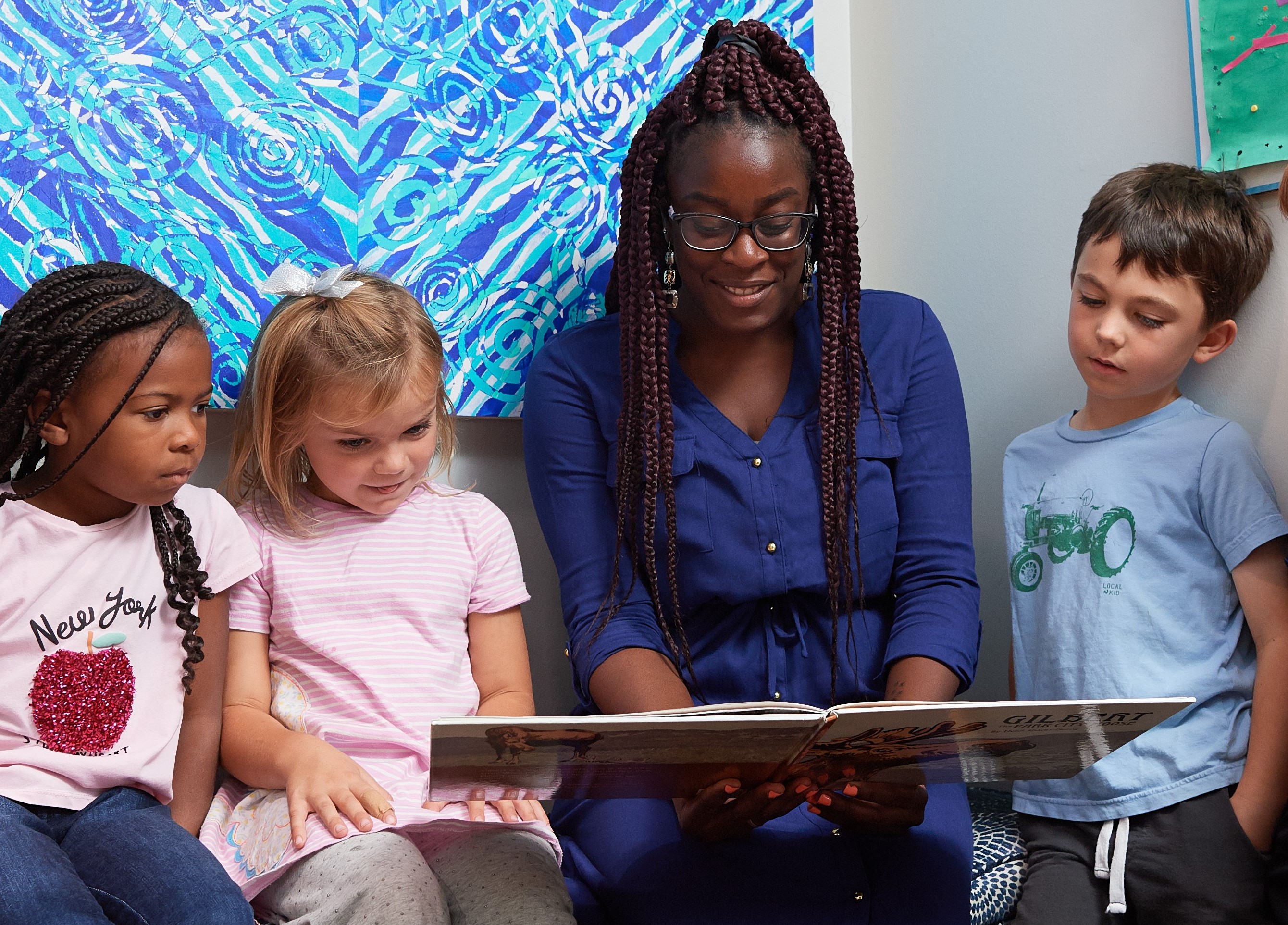The holiday season is upon us! While it is a special time of the year, the holidays can also be stressful. The year 2020 has magnified some of our normal holiday stress and brought about new challenges. We asked our in-house experts at Westtown School about different strategies we can use during the unusual holiday season of 2020. Here’s what we learned in our Coffee with the Counselors series.
Topics: Communication and Children, Inspiring the Best in Kids
Whether your children are learning virtually, in person, or a hybrid of both, I would guess that you have a heightened awareness of our child’s screen time over the past few months. As I wrestle with that as a parent and teacher, I remind myself that movement and noise—constructive noise, that is—have always been part of my classroom. In my traditional teaching environment, it was not odd for a teacher or parent walking the hall to hear my students chanting sentences to check their writing, acting out their favorite simile, or racing one another outside to demonstrate why the Pony Express was so effective.
My “traditional” way of teaching has had to be reinvisioned for the realities of delivering education online during a pandemic. Challenge accepted, COVID-19! As a teacher I have always utilized movement to help my students learn, and in this age of virtual classrooms and added screen time, the need for movement has become even more important. It is evident with my students and my own children that they need opportunities to move, to get outside, and to learn away from screens. In fact, studies have shown that there is a connection between movement and memory. Physicians encourage their patients to get out and move because of the benefits it has on mental clarity and overall health. A student who is active displays better focus, cognitive processing, and memory retention compared to those who spend the day sedentary. Keeping the body active is necessary for overall physical and neurological health.
Topics: Inspiring the Best in Kids
Essentials for Every Student: Routine, Action, & Autonomy
Posted by Corey Young on September 5, 2020
In his famous 1953 essay, “The Hedgehog and the Fox,” British philosopher Isiah Berlin separated people into two distinct groups—hedgehogs and foxes. Foxes, wrote Berlin, are sleek, cunning creatures who try to use dozens of strategies to solve complex problems. Conversely, hedgehogs are simple and methodical creatures who integrate a unified, or principled, approach to problem-solving.
For parents and students alike, trying to navigate the distance learning environment and all of its complexities can feel especially challenging at times. Regardless of whether your approach to problem solving resembles the cunning of the fox, the principality of the hedgehog, or a hybrid of both, understanding how, and when, to implement the right mix of strategies will be a key factor to sustaining success in distance learning. For those who aren’t sure where, or how, to start coordinating their strategic route to success, utilizing the three key elements in, what I call, the Student Circles of Success, should provide you with a solid foundation.
Student Circles of Success
Topics: Communication and Children, Inspiring the Best in Kids
Living on the six hundred acres that comprises Westtown School’s campus is an absolute gift. I have the privilege of walking through myriad paths and trails on the campus each and every day. It is during these walks that I do my deepest thinking, ponderings, and wonderings about most any aspect of life. The other day I set out my walk with a rather simple question: What does the world need right now? My question was prompted both by the ongoing challenges of the pandemic and the recent —though long-standing— battle against racism in our country. For the first ten minutes or so, my brain rambled and came up with a number of “heady” responses, none of which informed my gut that it was an “aha” moment or a meaningful revelation of any sort. So I decided to shut down my “monkey brain,” as many meditation teachers call our active noise-making noggins, and focused my attention on the winding path beneath my feet. When I choose to quiet my mind, it is not uncommon for songs to pop up out of nowhere. My childhood memories are filled with music and song as I come from a very musical ancestry; my maternal aunts and uncles were the Cuban version of the VonTrapp family in The Sound of Music. I began to hum a tune that my mother would harmonize to when I was a child. My mother, Antonia, had this uncanny ability to harmonize to anything that possessed a melody and so her voice echoed in my ear:
“What the world needs now is love, sweet love
It's the only thing that there's just too little of
What the world needs now is love, sweet love
No not just for some but for everyone.”
-Words by H. David and Music by Bacarach in 1965
Topics: Raising Resilient, Healthy Teens, Inspiring the Best in Kids
In March of 2000, I was in Washington, D.C. and overheard a colleague speaking about a Buddhist psychologist named Tara Brach who would be speaking that evening at an after-dinner event. Instantly hooked by the Buddhist-psychologist combo, I decided to attend. Within minutes, I was mesmerized by this small, soft-spoken, gentle woman whose quiet, melodic voice and light green compassionate eyes immediately sent me into a highly relaxed state. In her talk on radical acceptance, she spoke about the idea of moving towards what upsets us rather than moving away from it (with the use of denial, distraction, or otherwise). In fact, she recommended a most revolutionary idea which came to her as she was speaking to us (talk about being present in the moment and how creativity springs forth). Dr. Brach instructed us: “Invite your fear to tea.” I have practiced this approach and have taught this to so many patients over the years and it is a game changer! You may wonder, How can I apply this to our current situation? The script can sound something like: “Hello, Coronavirus, would you like to come to my porch and discuss some items over tea? Perhaps we can chat about what’s been going on in the world. Where you are going with this, because I am scared, disoriented, sad, and weary and after all, I do have a life to get back to.o, scratch that, reset...I have to accept you are here and that I need to make some adjustments and changes in my life, so that I can then see a new way forward with possibilities that can ground me and center me back into life again.”
Topics: Communication and Children, Inspiring the Best in Kids
We humans are meaning-making machines and it is ultimately our perception (or what our mind chooses to see) that informs the story we tell ourselves and others about what is happening and what it means. As a graduate student of psychology, perception was an area of study that I did not fully appreciate and simply experienced as a topic to review and file away. Thirty years later, I believe that perception is everything and that it is one of the most powerful tools that human beings possess. Perception determines and drives our approach, attitude, and actions in any given situation. The current global pandemic we are facing —and our varying responses to it— is a testament to the power of perception and how it impacts our experience, our behaviors, and the choices we make moment to moment. Even though our perceptions are informed and shaped by our personal life experiences, we humans have the capacity and the freedom to choose what we see, what we hear, and how we feel. These become the threads that weave the story that we tell.
Topics: Inspiring the Best in Kids
If you are either a current 9th or 10th grader or the parent of one, it is likely that college prep has or will soon come up in conversations. Realizing this, Westtown School’s Director of College Counseling visited our ninth and tenth-grade students in early February and shared these thoughts about college.
At this point, our recommendations about college are always about how to make the most of high school. We want students to work hard and learn a lot, not just because strong grades look impressive to colleges, but because the learning you gain along the way will make you a better student and a more interesting person. Looking good is nice, but if you go through high school trying to merely look good (for college or anyone else) instead of being your full self, you won't have a very satisfying experience.
Topics: Raising Resilient, Healthy Teens, Inspiring the Best in Kids
When I was younger, as a child of color in a household with parents who were also of color, talking about race was so common I don’t remember a time when we didn’t talk about it. I remember feeling proud and empowered about my racial identity. When I was faced with discrimination or hurtful stereotypes, even though it was painful, the foundation my parents helped create allowed me to talk about the experience knowing that I was more than a stereotype.
I knew that I could find support at home, but it was hard to talk with my white friends about these incidents. They rarely, if ever, had similar conversations at home. Their lack of ability to talk about race made it almost impossible to have a productive or restorative conversation.
Topics: Inspiring the Best in Kids
 Family holiday traditions are important to give our children a sense of connectedness and history. This holiday season, consider creating a new tradition of building a family collection of holiday stories. The books can be packed away at the end of the season and tucked away until next year, so they become beloved, anticipated stories to share over the years. Perhaps you can start your tradition with one of these new titles:
Family holiday traditions are important to give our children a sense of connectedness and history. This holiday season, consider creating a new tradition of building a family collection of holiday stories. The books can be packed away at the end of the season and tucked away until next year, so they become beloved, anticipated stories to share over the years. Perhaps you can start your tradition with one of these new titles:
The Shortest Day, by Susan Cooper - With stunning illustrations by Carson Ellis, this book celebrates the winter solstice and our relationship with the Earth’s cycles.
My First Kwanzaa, by Karen Katz - With bright collage illustrations, this book is a good introduction to the celebration of the seven days of Kwanzaa.
Topics: Inspiring the Best in Kids


_%2085%20(1).jpg)
20150160.jpg)



10201601769%20(1).jpg)

